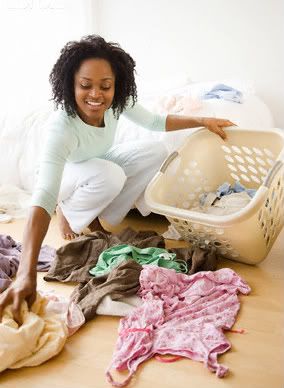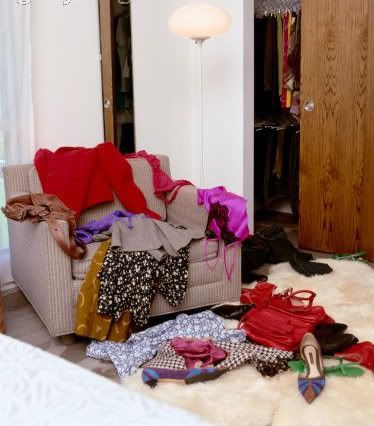In Her Shoes Home
De-Clutter Your Life

I came across an extremely helpful (and timely) piece on Entrepreneur.com on the importance of de-cluttering our lives that I thought you’d enjoy. The article is pretty lengthy so for your convenience, I pulled out the important points. Take notes!
Clutter happens because of a delay in making decisions about the disposition of stuff. The longer it takes to decide what to do with something, where to put it or whether to keep it, the easier it is to create clutter. If you aren’t using something, give it away. Insisting “I may need it someday” or “I paid a lot of money for that” to justify keeping the item almost guarantees that the clutter will never disappear.

Regardless of the justifications for maintaining clutter and mess, here are some basic tips on moving through the de-clutter process. This may be daunting, so call a friend to help. De-cluttering is likely to be stressful, but preparing for the process is a good way to keep the stress to a minimum.
- Make the time to de-clutter and be reasonable about how much can be accomplished in the time that has been set aside. A crowded, cluttered workspace didn’t get that way overnight and will not become uncluttered all at once. If you don’t set aside enough time to deal with the mess in a thoughtful, planned manner, you may get frustrated. Also, tackle one area at a time. A good rule: a four-hour block of time is enough to clear through the clutter in one area (a bedroom, the top of a desk, a supply closet). For the first two hours, pull everything out of the space and sort into piles; for the remaining two hours, put away the sorted piles. For every section of clutter, make sure there is enough time to clear it.
- Clear the clutter by making temporary piles: Things to toss, things to recycle, things to file and things to send to the office archives. This sorting process is the only way to get through the piles.
- Acknowledge that clearing the workspace means throwing some things away. For every decision about what to toss, donate, etc., ask a series of questions: Will life be better served with or without this item? Does the item serve to bring happiness? Is ego involved in keeping it? Are you keeping the item because someone might be hurt if you don’t?
Now that you’ve de-cluttered your space it’s time to start thinking about how to keep it that way. Everything we do in life is a habit which over time, becomes a lifestyle. Developing an array of new habits will go a long way toward maintaining a clean and stress-free environment. Here’s to a clutter-free life!
As a New York City storyteller, filmmaker, digital content creator, and PR strategist, Renae Bluitt created "In Her Shoes" to empower and enlighten women committed to realizing their dreams.





